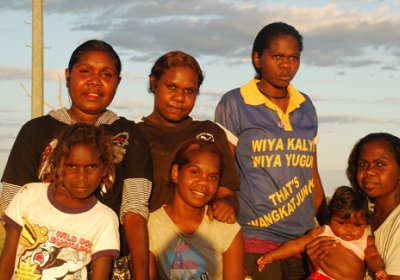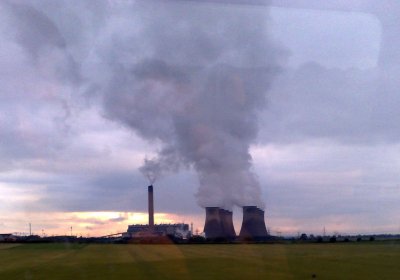The fight against the dumping of toxic waste off the coast of Madang in Papua New Guinea suffered a setback when a court injunction against the Ramu nickel mine, which is building a pipe to dump its waste into the ocean, was reversed.
The injunction was dropped after the three remaining plaintiffs pulled out of the case against the US$1.4 billion Chinese-owned mine, the September 24 Sydney Morning Herald said.
Mining
Nineteen seventy nine was a very good year for the Western Australian ruling class. The corporate puppet masters had the ideal puppet in Premier Charles Court, and the most right wing, racist Liberal Party in Australia.
With a heavily gerrymandered parliament, Court rode roughshod over union rights, civil liberties, Aboriginal rights and Aboriginal land.
Enter the Kimberley Land Council (KLC) who had recently formed to represent the Aboriginal communities in the far north of WA. The KLC was determined to take a stand against the mining land grab.
Leaked documents revealed by the September 23 Sydney Morning Herald show large coal companies colluded to begin coal-seam gas mining under Sydney’s drinking water catchment.
The documents show gas-drilling company Apex Energy NL agreed to help Peabody Energy distance itself from bad publicity arising out of a proposal to begin coal-seam gas mining at the Metropolitan Colliery.
Apex was to expand the colliery without mentioning the coal-seam gas aspect of the expansion, which had the potential to contaminate water supplies.
Local climate action group Safe Climate has planned a campaign calling on the Western Australian government to reverse approval for five new and refurbished coal-fired power stations.
The campaign will include: an ambitious goal to get 10,000 signatures on a petition opposing the new coal developments before the end of the year; a poster design campaign; and a rally in December.
Safe Climate is also discussing possible civil disobedience actions.
The campaign will be launched at an October 10 action, as part of the 350.org 10/10/10 Global Work Party day of action.
Thirty-three miners trapped 700 metres underground in northern Chile have been told they will not be paid in coming months, despite the fact it is expected to take close to two-and-a-half months to pull them out.
Five families are suing Xstrata, the Queensland government and the Mt Isa council over alleged lead contamination.
As part of their case, they commissioned US neuroscientist Theodore Lidsky to examine brain tests on Mt Isa children. His report found some Mt Isa children had brain damage from long-term exposure to lead, the families’ lawyer, Damian Scattini, told ABC News on September 17.
Coal rules. That was the message delivered last week by the new Labor government.
Freshly appointed climate change minister Greg Combet began his ministership by telling the September 13 Australian: “The coal industry is a very vibrant industry with a strong future. What you've got to do is look to how we can achieve in the longer term things like carbon capture and storage for coal-fired power stations.”
Pacific Rim Mining held its annual general meeting in downtown Vancouver on August 28. It was attended by a few directors and more than a dozen protesters.
Most of the demonstrators were from the Committee in Solidarity with the People of El Salvador (CISPES) in the US Pacific Northwest. They wore tags describing themselves as shareholders in democracy, human rights, access to clean water and “our future”.
The Australia Western Sahara Association has urged BHP-Billiton to suspend Canadian company PotashCorp’s trade in phosphate from Western Sahara if its takeover bid is successful.
AWSA president Lyn Allison said in an August 25 statement: “If BHP cares anything for business ethics, social responsibility and international law, it will not allow the Canadian fertiliser corporation to buy further Western Saharan phosphate from Morocco.”
An important campaign is emerging against the proposal to establish a coalmine in the iconic tourist and wine-making region of Margaret River in south-west Western Australia.
The campaign has attracted support in the local community, reflected in a pre-election Walk Against Warming rally attended by hundreds of people and several successful community organising meetings.
Opposition has grown to the Western Australian state government’s compulsory seizure of James Price Point, 60km north of Broome, for a $30 billion gas processing project in the Browse Basin. The Kimberly Land Council (KLC), the Greens and the Wilderness Society have all spoken out against the move.
Frank Parriman, the co-chair of the KLC Traditional Owners negotiating committee, accused Woodside, the company that plans to build the project, of orchestrating the takeover.
“An oil platform explosion on September 2 in the Gulf of Mexico forced the crew to jump into the sea and threatened further damage to waters still recovering from the BP disaster”, AFP said that day.
The explosion on the platform, owned by Houston-based Mariner Energy, comes in the aftermath of the BP-owned Deepwater Horizon rig explosion in the gulf in April, which killed 11 workers. Bloomberg.com said on August 20 that 4.9 million barrels of oil escaped from the leaking well.
- Previous page
- Page 44
- Next page










